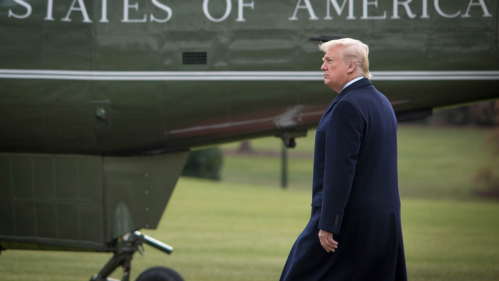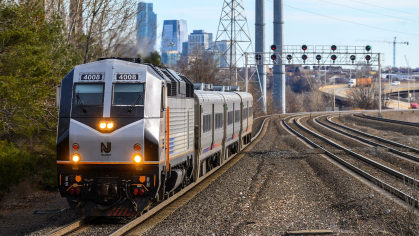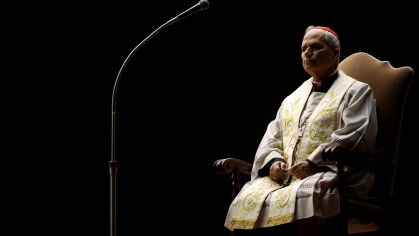President Trump’s Positive COVID-19 Test Unprecedented in History, Says Rutgers Expert

Historian David Greenberg says it’s too soon to tell how the positive test will affect the election outcome
Breaking news early Friday morning that President Donald Trump and his wife, Melania, have tested positive for COVID-19 about a month before Election Day rocked the nation and upended the presidential campaign. David Greenberg, a professor of history and journalism and media studies and an expert on American political and cultural history, including the presidency, talked to Rutgers Today about this unprecedented moment in the midst of the pandemic.
Has a presidential candidate ever gotten sick this close to an election?
I can’t think of a situation that is comparable. FDR was quite ill in 1944 with hypertension and congestive heart failure. There is some historical controversy about to what degree he concealed this. He won reelection for a fourth term but died early in that new term.
Eisenhower had a serious heart attack in 1955, and the issue was used against him in 1956. Democrats warned that his vice president, Nixon, might well take over. But Eisenhower survived his second term and lived another eight years.
In January 1992, before the election heated up, George Bush, Sr., got very sick and vomited in the lap of the Japanese prime minister. It was known that Bush was suffering from Graves’ Disease, but there was talk in Washington that he was much sicker than he let on. However, because his vice president was Dan Quayle, widely seen as not ready for the presidency, his sickness was downplayed.
Horace Greeley, the losing presidential candidate in 1872, died shortly after the election. I can’t think of other examples, but there may well be others.
How does this news affect the American public?
The president is an important symbol in our imaginative lives. What happens to the president, even a president we may not like, affects us. Our ideas about the president form in early childhood and can have a mythic quality. After the Kennedy assassination, psychosomatic illnesses went up. Trump’s contraction of the coronavirus will surely make people more fearful at a time when things were starting to return to normal, or something close to it. I expect people will have a renewed sense of vulnerability and anxiety.
How do you think this is going to affect the campaign and election outcome?
There is no way to tell. It could direct attention to Trump’s own poor handling of the pandemic, which would help Biden. But it could also lead people, consciously or unconsciously, to have sympathy for him.


